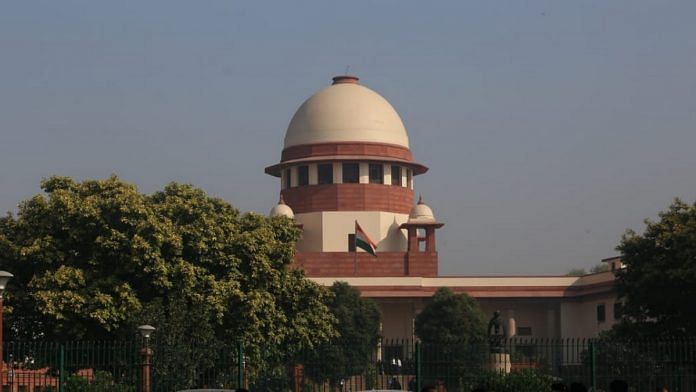New Delhi: Courts should give specific reasons while granting or denying bail as the issue concerns both the liberty of the accused and ensuring that the offender does not obstruct the delivery of justice, the Supreme Court said on Thursday.
It said open justice is premised on the notion that it should not only be done, but should “manifestly and undoubtedly” be seen to be done and the duty of judges to give reasoned decisions lies at the heart of this commitment.
A bench of Justices D Y Chandrachud and Hrishikesh Roy made these observations while cancelling the bail granted to an accused in a murder case by the Rajasthan High Court on the ground that it was an unreasoned order and shows non-application of mind by the judge.
“Merely recording ‘having perused the record’ and ‘on the facts and circumstances of the case’ does not sub-serve the purpose of a reasoned judicial order. It is a fundamental premise of open justice, to which our judicial system is committed, that factors which have weighed in the mind of the judge in the rejection or the grant of bail are recorded in the order passed,” it said.
“Questions of the grant of bail concern both liberty of individuals undergoing criminal prosecution as well as the interests of the criminal justice system in ensuring that those who commit crimes are not afforded the opportunity to obstruct justice. Judges are duty bound to explain the basis on which they have arrived at a conclusion,” it said.
The top court said that where an order refusing or granting bail does not furnish the reasons then there is a presumption of the non-application of mind, which may require the intervention of the appellate court.
It said that where an earlier application for bail has been rejected, there is a higher burden on the appellate court to furnish specific reasons as to why bail should be granted.
“Where a court considering an application for bail fails to consider relevant factors, an appellate court may justifiably set aside the order granting bail. An appellate court is thus required to consider whether the order granting bail suffers from a non-application of mind or is not borne out from a prima facie view of the evidence on record,” it said.
The top court added that it is necessary for it to assess whether, on the basis of the evidentiary record, there existed a prima facie or reasonable ground to believe that the accused had committed the crime, also taking into account the seriousness of crime and severity of punishment.
“The correctness of an order granting bail is tested on the anvil of whether there was an improper or arbitrary exercise of the discretion in the grant of bail. The test is whether the order granting bail is perverse, illegal or unjustified.
“On the other hand, an application for cancellation of bail is generally examined on the anvil of the existence of supervening circumstances or violations of the conditions of bail by a person to whom bail has been granted,” it said.
The bench said that the provision for an accused to be released on bail touches upon the liberty of an individual and it is for this reason that apex court does not ordinarily interfere with an order of the High Court granting bail.
“However, where the discretion of the High Court to grant bail has been exercised without the due application of mind or in contravention of the directions of this Court, such an order granting bail is liable to be set aside,” it said.
The bench said that the court is required to factor, amongst other things, a prima facie view that the accused had committed the offence, the nature and gravity of the offence and the likelihood of the accused obstructing the proceedings of the trial in any manner or evading the course of justice.
“The provision for being released on bail draws an appropriate balance between public interest in the administration of justice and the protection of individual liberty pending adjudication of the case. However, the grant of bail is to be secured within the bounds of the law and in compliance with the conditions laid down by this Court,” it said.
The top court said that “no straight jacket formula exists for courts to assess an application for the grant or rejection of bail” but the determination of whether a case is fit for the grant of bail involves the balancing of numerous factors, among which the nature of the offence, the severity of the punishment and a prima facie view of the involvement of the accused are important.
It said that the power to grant bail under Section 439 of CrPC is of a wide amplitude but it is well settled that though the grant of bail involves the exercise of the discretionary power of the court, it has to be exercised in a judicious manner and not as a matter of course.
Also read: Modi govt keeps SC collegium waiting on Kashmir lawyer picked as HC judge, gives no reason




One hopes Ms Sudha Bhardwaj and her colleagues will soon be granted bail, even as all the facts and circumstances of this puzzling case are carefully examined by the new government.